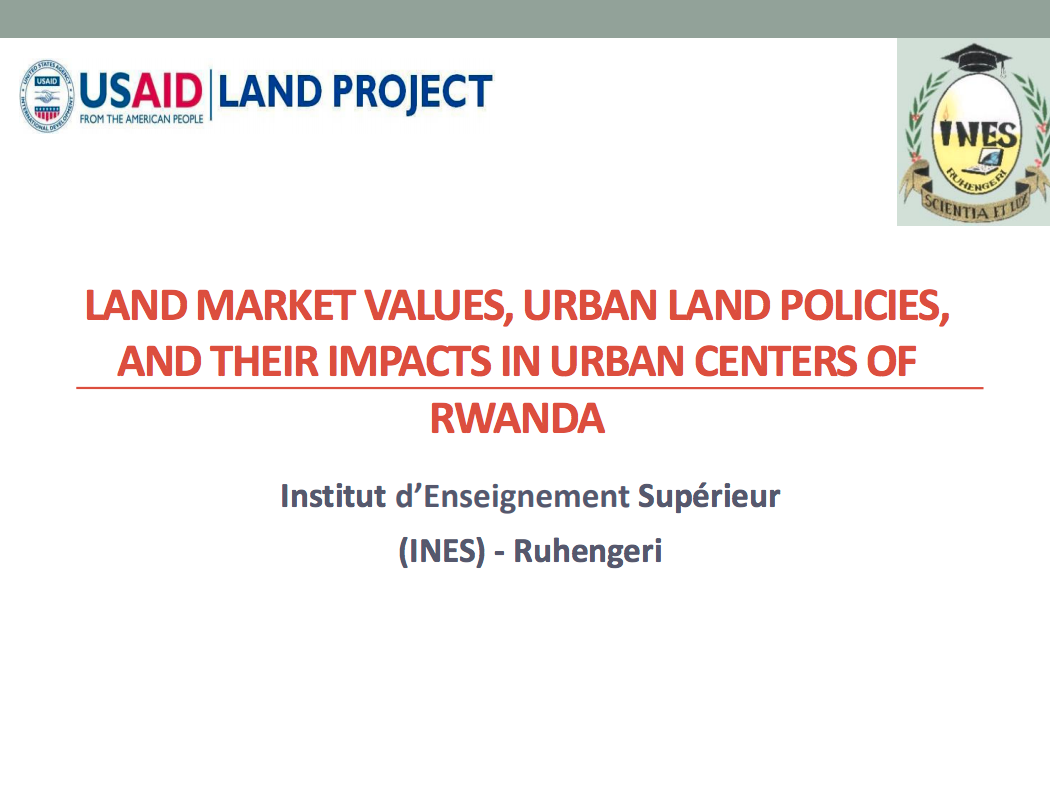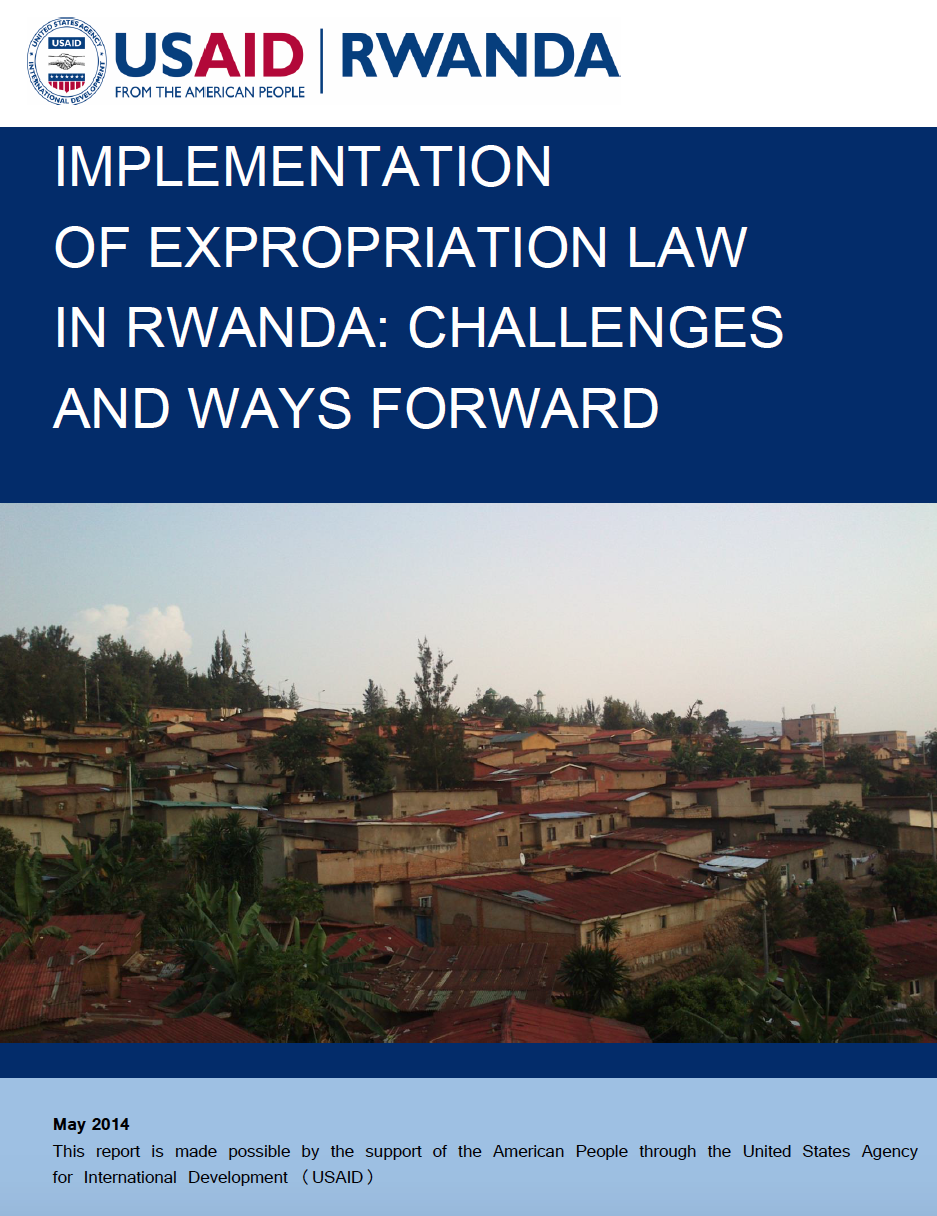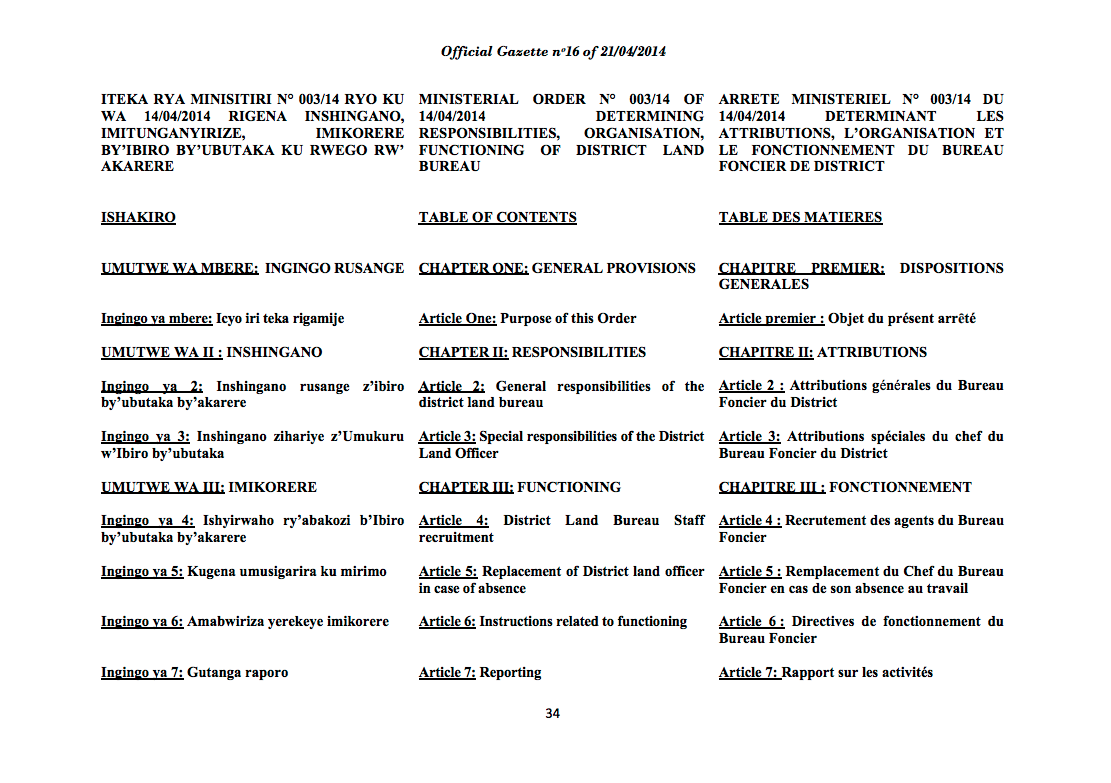The LAND Project is a five year program supported by the United States Agency for International Development (USAID). Its primary goal is strengthening the resilience of Rwandan citizens, communities and institutions and their ability to adapt to land-related economic, environmental and social changes.
Resilience is defined as “the ability to withstand or recover from difficult conditions.” It also comprises the ability of human and ecological systems to recover from shocks or difficult changes, and to transform to a better condition by responding flexibly and creatively to stress factors. In Rwanda, land tends to be one of the primary assets citizens rely on to buffer against difficult conditions and rapid change.
The project’s central objectives are twofold:
1.Increased capacity of local Rwandan institutions to generate high quality, evidence-based research on land-related issues that can be used by the Government, civil society organizations, and Rwandan citizens.
2. Increased understanding of land laws, policies, regulations, and legal judgments on land-related issues by GOR officials, local civil society organizations, research institutes and citizens.
Key outcomes of the project include:
- Holding annual National Land Research Agenda workshops to establish the research priorities of land sector stakeholders that the LAND Project will support. These workshops bring together multiple stakeholders from government, civil society and the research community;
- Supporting research on land-related issues through competitive awards to Rwandan research institutions, universities, and civil society organizations, and providing tailored capacity building assistance to improve research and advocacy capabilities;
- Offering training and other support to legal assistance providers to enhance their capacity to support women and vulnerable populations in understanding and realizing their land rights;
- Training local land authorities on the implementation of the land law and regulations.
- Carrying out research on critical land issues, including gendered land rights in practice, community rights to resources in and around protected areas, and expropriation.
- Managing a land-focused website to improve research, communications, and policy advocacy efforts that are focused on land, and to act as a vehicle for enhancing collaboration between actors working in the land sector;
- Providing organizational development support to civil society organizations supporting women’s land rights.
- Supporting innovative and coordinated communications approaches by civil society and government that enhance the knowledge of Rwandan citizens about research findings and their land rights.
Because the LAND Project is a five year endeavor, we are seeking an institution that has the interest, capacity, skills and resources to eventually take over hosting and maintenance of the website, ensuring it stays up-to-date and relevant to the land sector stakeholder community. If your organization is potentially interested in assuming management of this site, please contact us and tell us why you believe your institution would be an ideal candidate.
Members:
Resources
Displaying 26 - 30 of 149Policy Brief: Land Market Values, Urban Land Policies, and their Impacts in Urban Centers of Rwanda
This policy brief summarizes the main findings and recommendations of qualitative and quantative research on urban land markets in Rwanda. The main objective of this research is to investigate land market values, urban land policies and their impacts on urban centers. Three (3) specific objectives can be distinguished namely: a) Evaluating the determinants of urban land markets; b) Analysis of trends in urban land markets and values; and c) Assessing impacts of urban land prices and policies.
Property Rights for Women in Rwanda: Access to land for women living in de facto unions
To say that access to land is one of the most important conditions for the
empowerment of African women, would be an understatement. The cultivation of land is one
of the main sources of income and economic wealth depends strongly on a well-elaborated
system of land tenure. However, developing and protecting land rights1
for women in mainly
male-dominated societies is a long-term work. Even though law initiatives2 may guarantee a
de jure equal access to land for women, the outcome highly depends on the way the culturebound
LAND Project Policy Brief: Implementation of the Expropriation Law in Rwanda
This policy brief aims to inform policy and current practices governing land expropriation in Rwanda drawing on recent research carried out by the LAND Project. The brief elaborates on the legal framework and procedures guiding expropriation and on reported practice based on information gathered from primary and secondary sources. It then proposes measures that would potentially strengthen implementation of expropriation exercises countrywide.
Ministerial Order N° 003/14 of 14/04/2014 Determining the Structure of Land Registers, the Responsibilities and the Functioning of the District Land Bureau.
Ministerial Order N° 003/14 OF 14/04/2014 Determining the Structure of Land Registers, the Responsibilities and the Functioning of the District Land Bureau. Published on the 14 April 2014
LAND Project Policy Brief: Contested Claims over Protected Area Resources in Rwanda
The aim of this policy brief is to describe current and historical conflicts over rights to land and natural resources within and surrounding protected areas in Rwanda. We examine the roots of contested claims between citizens and the State and offer some potential avenues for resolving these conflicts in ways that consider both the priorities of the Government of Rwanda and the rights of local communities that depend on protected area resources.






